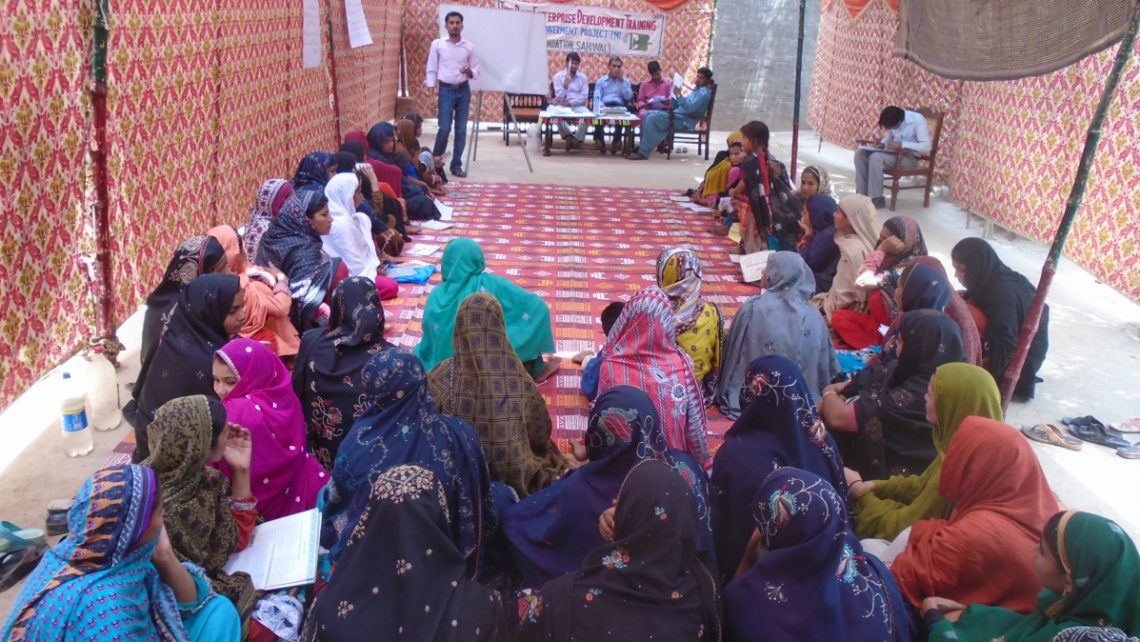Context: Pakistan’s youth population represents one of the largest (and few remaining) instances of a youth bulge; that is a large share of youth relative to the adult population. Paramount to youth being able to reach their potential is education, with literacy forming one of the most basic components. As a whole, Pakistan has large challenges regarding literacy, with adult literacy for both sexes at 57 per cent in 2012. Youth outperform the general population, with rates for young females and males at 64 and 80 per cent compared to the adult population at 43 and 70 per cent, respectively. Another aspect these data points highlight is the large gap between males and females for both age groups.
Implementation of programme/ initiative: The BUNYAD Foundation works in a variety of areas with a strong focus on promoting literacy among children, women and girls, particularly those living in marginalized rural communities, and many of whom are out of school. A key focus of the Foundation is on using non-formal education to achieve literacy. Over time, the Foundation has also begun putting an emphasis on building social capital and tackling a myriad of social issues, including child labour, sanitation, micro credit and community development. Training of trainers programmes have been successful in allowing the Foundation to increase its geographic impact. A particularly innovative campaign launched 2009, in partnership with UNESCO, used mobile phones to improve young women’s literacy in rural and urban areas.
Main challenges: Since illiteracy persists across age groups and gender, it is often difficult to convince people of the merits of targeting the most vulnerable groups in society because many others also face the same issue. A strong gender bias against educating women is prevalent in Pakistan and thus a major challenge for any group hoping to promote female education. With a youth population exceeding 37 million, there is inevitably a plurality of issues, which could be difficult to accommodate.
Results achieved: The Foundation is active in 18 districts of the province of Punjab and in more than 2,000 villages throughout Pakistan. Since the Foundation’s inception in 1994 until 2012 it had more than 2.5 million beneficiaries. Recognized at the national, regional and international level, it has received two UNESCO Awards in the field of literacy and non-formal education.
Moving Forward: The continued success of the Foundation requires ensuring political will and support for literacy. Linked to political will is the need for literacy policy and planning, and particularly monitoring and evaluation. In a similar vein, efforts need to be made to build the capacity of relevant stakeholders to create a long-term, sustained impact. Since the majority of work has been done in the province of Punjab, efforts to expand the reach of the Foundation to other provinces would be beneficial in terms of a wider impact.
Replicability: The work done by the BUNYAD Foundation shows the positive impact non-formal education can have on improving literacy. Using education as a tool for tackling other social challenges, such as child labour, it has been particularly successful. Incorporating ICTs into literacy programmes is an increasingly relevant idea, with mobile phone becoming widespread in not only urban centres but also rural areas.
References:
Project Details
Date: September 23, 2016
